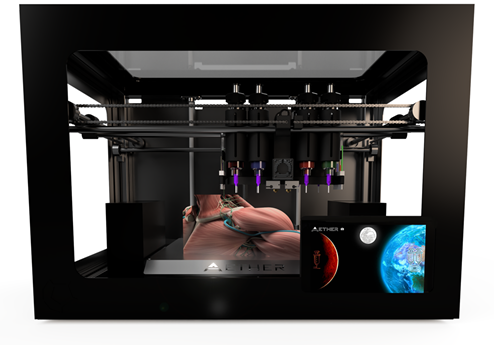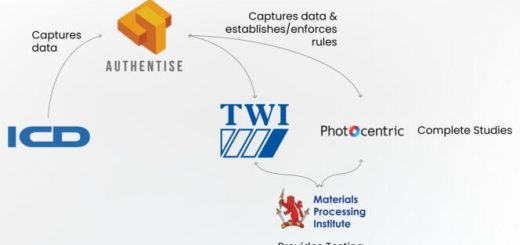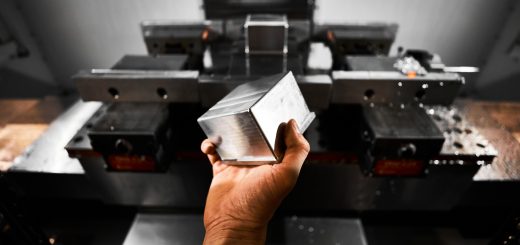Aether and Procter & Gamble Begin 3D Printing and AI Development Project
Aether announced the commencement of a two year joint development agreement with Procter & Gamble (NYSE: PG) “P&G” for the development of cutting edge 3D printing and AI technologies.
Aether 1, the multi-tool and multi-material 3D printer, will be used as a technology creation platform to develop an array of hardware and software capabilities designed to automate and improve product research applications for P&G, as well as to develop a revolutionary next-generation Aether 3D printer.

“Aether is working with P&G to completely redefine 3D printing. It’s no longer going to be just about depositing a material or two in a specific pattern,” said Aether CEO and Founder Ryan Franks. “We’re building something more like an intelligent robotic craftsman, able to perform highly complex tasks with many different tools, visually evaluate and correct its work throughout the fabrication process, and constantly learn how to improve.”
![]() 3D Printing technology
3D Printing technology
Development will include creating an interconnected network of computer vision and AI algorithms to significantly increase multi-tool and multi-material 3D printing automation, as well as build a dramatically expanded suite of features designed to expand the possibilities for the field of 3D printing.
An array of high-performance cameras will be paired with custom designed hardware to enable new robotics capabilities never-before-seen on a 3D printer.
These include real-time in-situ print monitoring with dynamic intelligent response for parameter adjustment and error correction, automatic performance of post-processing treatments, object recognition and manipulation, automation of multi-tool hybrid manufacturing processes, and a groundbreaking user interface which will enable users to interact with a 3D printer in entirely new ways.

![]() Machine learning Image processing
Machine learning Image processing
Aether is developing additional software to automate image processing for P&G with the goal of providing a substantial increase in speed over manual processing methods.
Deep learning techniques will be used to train multiple neural networks such as convolutional neural networks, deep residual networks, generative query networks or other generative neural networks to achieve high-accuracy automatic 2D to 3D file conversion for P&G researchers.
![]() Foundational technology
Foundational technology
The development of advanced automation for multi-material 3D printing and hybrid manufacturing may have wide reaching impact across many fields.
Aether’s goal is to combine AI with robotics to make it quick and easy to print complex structures using a wide variety of materials, tools, and fabrication methods, which would be a major step forward towards 3D printing reaching its potential.
Researchers will be able to prototype and test their ideas more rapidly and effectively. Scientists will gain a new tool they can use to make major breakthroughs with a faster and more efficient modeling platform.
Source:Globe Newswire




Recent Comments